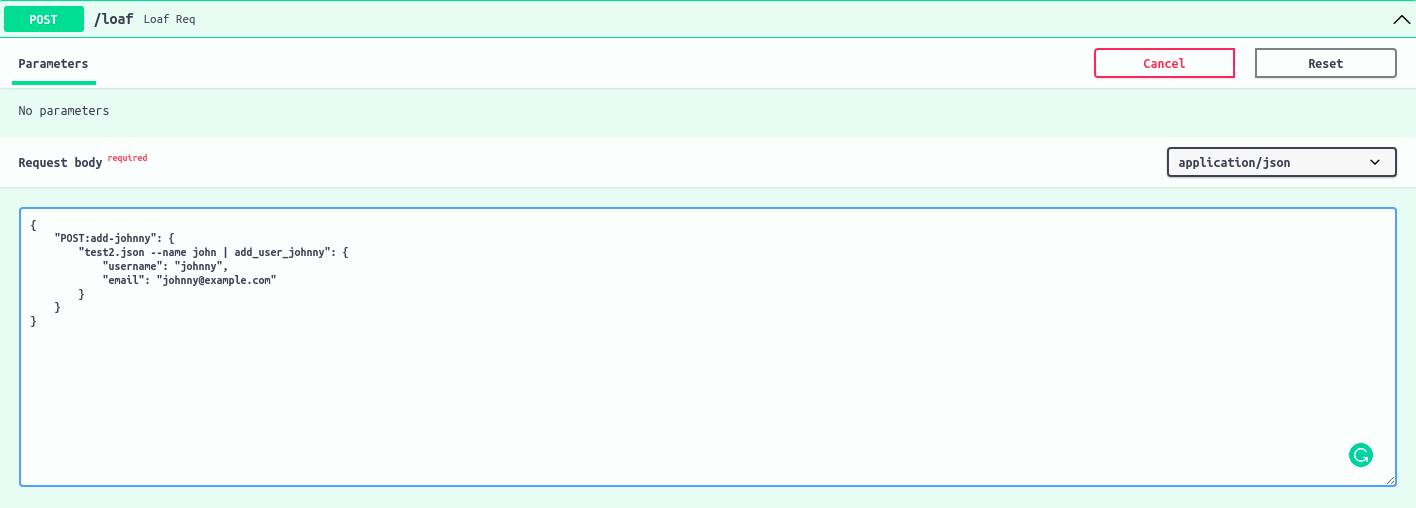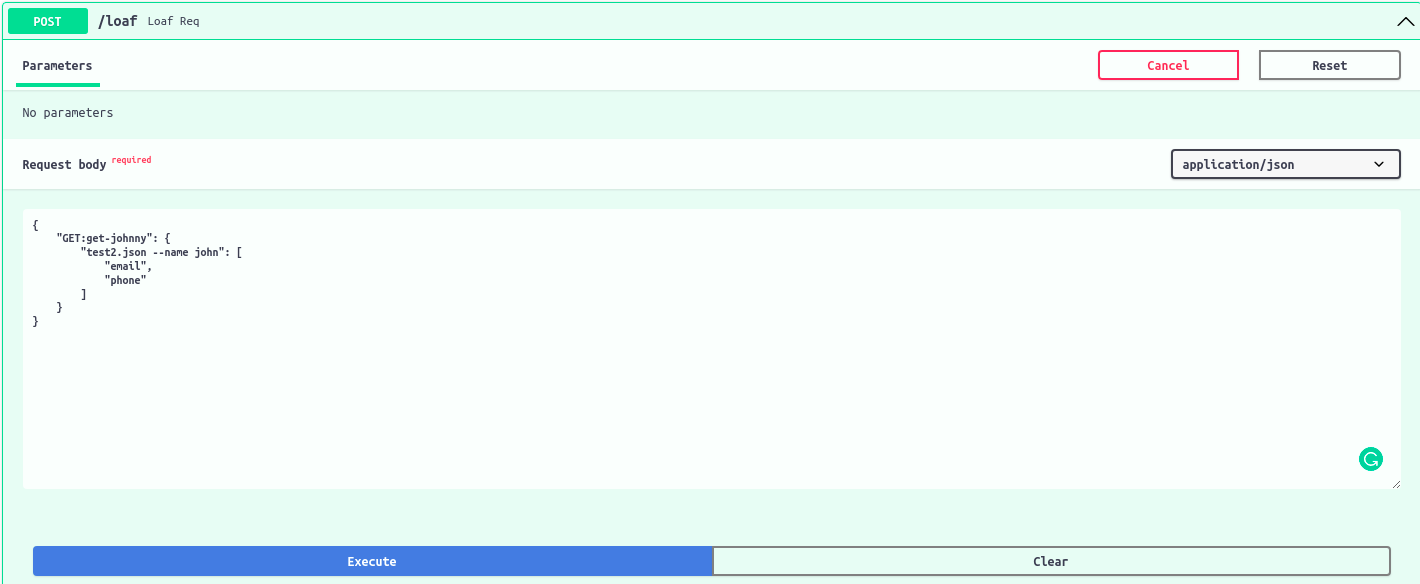Example Use case
I cannot find a way to explain each part of the parsing process as each thing is interdependent and you cannot talk about one thing without talking about the other.
So here we will go through an example of using loafang with fastapi and tinydb
Let's write the code first and then we can talk about what each part does.
Installation
pip3 install loafang fastapi uvicorn tinydb
Let's write some code
# app.py
from argparse import Namespace # for type hinting purposes only
from typing import Any, Dict, List, Union
from fastapi import FastAPI, HTTPException
from loafang import parse, Methods, MethodsError, QueryBuilder
from tinydb import TinyDB, Query
query_parser = QueryBuilder("database")
query_parser.add_argument("name", type=str)
class RequestMethods(Methods):
def __init__(self) -> None:
self.get_query_parser = query_parser
self.post_query_parser = query_parser # you can have different parsers
# for different request methods
# handle the GET request
def get(self, args: Namespace, contents: List[str]) -> Any:
if not all(i in ["username", "email"] for i in contents):
raise MethodsError(400, "invalid request contents")
# raise MethodsError when ever you see that something is not right
# with the query that you received
User = Query()
db = TinyDB(args.database)
# assumes that the user is in the db
rd = db.search(User.name == args.name)[0]
rv = {}
for c in contents:
rv[c] = rd[c]
return rv
# handle the post request
def post(self, args: Namespace, contents: Dict[str, Any]) -> Any:
db = TinyDB(args.database)
db.insert({"username": contents["username"], "name": args.name, "email": contents["email"]})
return {"msg": "user added successfully"}
# initialize the server
app = FastAPI()
# vague type of the query the endpoint might receive
JSONObject = Union[Dict[str, Any], List[str]]
req_methods = RequestMethods()
@app.get("/")
def read_root():
return {"ping": "pong"}
@app.post("/loaf")
def loaf_req(data: JSONObject):
rd, err, msg = parse(req_methods, data)
# if something goes whether internally or MethodsError the data returned
# will be none and the subsequent code and msg will be provided.
# There are no codes for success.
return rd if rd else HTTPException(err, msg)
Let's run the server
uvicorn app:app
Now let's send a simple post request
{
"POST:add-johnny": {
"test2.json --name john | add_user_johnny": {
"username": "johnny",
"email": "johnny@example.com"
}
}
}

With the current way its setup we will get the following response.

Let's send a request that will cause MethodsError defined in get will be raised. Inorder to do that we just need to send a GET request with an invalid content.
{
"GET:get-johnny": {
"test2.json --name john": [
"email",
"phone"
]
}
}

Here phone is not a valid content argument.
So we will get following response.

So, that's a simple example use case of loafang. If you have any issues feel free to ask it one the discord server, (link in the footer). Or via github issues.
Happy Coding.